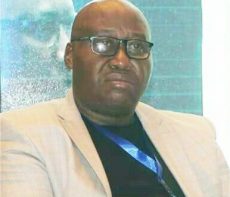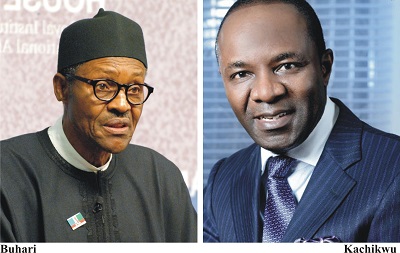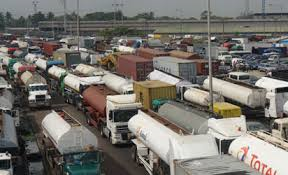Bello Koko : Transforming Nigerian Ports through Reconstruction, Digitalization
By Shola Fadeyi

The need to ensure that the Nigerian Seaports become more efficient , offer more quality services to port users as well as make it possible for Nigeria to take up its natural position as a maritime hub ,for countries in West and Central Africa has been the major focus of the current management, of the Nigerian Ports Authority(NPA), headed by Muhammed Bello Koko.
Trans-shipment
Little wonder that through the kick off ,of commercial operations, by the Lekki Deep Seaport and the various reforms that have been engendered by the current NPA management, he has ensured that some countries in the West and Central African sub region are set to start using Nigerian seaports , particularly Lekki Port, as a transshipment base for their imports.
Modernisation
Consequently, the achievements, which the management has recorded so far in the area of its quest for the total rehabilitation or reconstruction and automation of the Nigerian Ports, have been due to the great emphasis which Bello Koko has placed on the transformation of the operation s of the Ports , since he became the Acting Managing Director of the NPA, in May 2021 .
This has been in the realm of the total rehabilitation and upgrade of the Ports facilities and the improvement in the digitalization of their processes, that require automation, so that the Nigerian ports can become revolutionized and comparable with others in the advanced maritime nations.
Infrastructure Upgrade
However, for the Ports in Nigeria , the need for the total upgrade of their facilities , and the automation of their processes and operations , became more Germaine , when it is realized that almost all their infrastructure , such as the Quay Apron have been overdue for reconstruction, because they have existed for over 70 years , beyond the about 45- 50 years lifespan of such facilities.
In the list of the Ports ,which most of the infrastructure, such as the Quays have decayed and requires reconstruction , include the Lagos Seaports, of Apapa and Tin Can , Port Harcourt and Calabar Ports , while some of the facilities of even the relatively new Onne Ports also needed to be salvaged. The fact is that the Quays can no longer withstand the remedial works being carried out on them .
$800m Loan
Thus, it is in his quest to achieve the type of seaports , which infrastructure will be standard and modern and which operations would be highly information technology (ICT) driven , that the NPA management resolved that it requires a total sum of $800 million to fund the total rehabilitation and automation of some of the Ports.
The fund is to be used specifically for the reconstruction and rehabilitation of the infrastructure of the Tin Can , berths 4 to 14 in Apapa, Calabar , Onne Ports ,the Warri Port Jetties, rehabilitation of the Escravos breakwaters, as well as the upgrade of the digitalization of the processes and operations of the seaports.
Upgrade of Infrastructure
The management is planning to reconstruct the quays to ensure that they are safe for usage,and for them to be able to withstand the planned deepening of the existing channel draft in some of the Ports , including those in Lagos and others.
At a time , the management was cut between securing the fund for the project through a loan from any of the foreign multilateral lending institutions or using part of the NPA revenue for the work , a development , which would however reduce its contributions to the CRF, but the former Mohammadu Buhari’s Administration opted for the loan option .
AFREXIM
This is because while the Port Act permits the NPA to use up to 50 per cent of its revenue for the rehabilitation of its operations, the Fiscal Responsibility Act and Finance Act do not however allow it to spend more than 80 per cent , while its financial contribution to the CRF will decline if it has to use part of its revenue for the project .This largely informed government’s lack of nod for the Authority to self finance the project.
Consequently, the international lending institutions that were considered include the French Development Agency(AFD), African Development Bank(AfDB), European Investment Bank(EIB), among others, but the NPA management seemed to have opted for the African Export- Import Bank(AFREXIM) with , which it has been in discussion and very hopeful to secure the loan
Moratorium
The idea is that the NPA will borrow money for a period of about 10 years, with three years moratorium, meaning that provisions that would be made for the payment of that loan, would make the repayment to kick off, in either 2024 or 2025.
However, as the loan is being awaited to finance the total rehabilitation and digitalization projects, the management has been providing vital facilities and equipment, required for the provision of improved services to port users ,as well as carry out some rehabilitation works, in the seaports under the NPA’s control in the West and Eastern parts of the country.
Lagos Seaports
In Lagos, it has completed the projects on the modernization of Control Towers at Lagos Port Complex and Tin Can Island Port as well as inaugurated the project ; installed over 180 Marine Fenders on all Quays Authority Wide for safe berthing; Installation of Buoys at Ijegun/Kirikiri water channel and licensing and Upgrading of Pilots across the four Pilotage District.
Purchase of Harbour Crafts
The management has likewise acquired many Harbour Crafts (Tugboats, Pilot Cutters) . For instance , as part of its enhancement of the capacity and efficiency of the Lekki Deep Seaport, and the Ports in Lagos , the management just procured state of the art 80 Ton Bollard Pull Tugboats to complement its existing fleet of tugs.
Patrol Boats, Truck Parks
It also purchased Patrol Boats, licensed additional truck parks , a development that has increased the capacity of truck parks servicing the Lagos Ports while it licensed 10 Export Processing Terminals , thus facilitating exports at the Nigerian Sea Ports as most of the terminals are already fully operational.
Monitoring of E Truck Call Up System
It recently provided additional 24 motor cycles thus aiding the effective monitoring of the Electronic Truck -Call Up operations at Apapa/TCIPC/Ijora axis and contributing to easing free flow of traffic. Several new patrol boats and vehicles for the patrol of the ports and their sea sides, to check attacks by criminals on vessels at berths and for the patrol of the waterways around the Ports environment , were also made available.
Eastern Ports
With vital things necessary for effective port operation lacking, the NPA management has achieved a lot in this area. They include; the survey and Mapping of the Fairway Buoy up to Warri-Sapele-Koko Ports to the prescribed standards of the UKHO Charts; increase Container holding capacity at Rivers Port arising from conversion of unused space within PTOL Terminal into stacking area;
Infrastructure
The NPA management has upgraded the infrastructure at Terminal ‘B’, Berth 7 and 8, Onne Port Complex based on Messrs WACT Nigeria Limited proposal for investment exceeding $110 million over a period of two years and completed the construction of 6,000 metric tonnes Bitumen Tank in Rivers Port Complex .
This has gone ahead to improve the company’s bitumen storage capacity , ease its operations and impacted on the infrastructural development of the South-South. The Authority has also granted approval for the completion of Road Network for the integration of Berth 9,10, &11 at Federal Ocean Terminal, Onne Port, thus boosting the Port operations, while it has installed 86 Buoys for Warri and Calabar Pilotage Districts.
Escravos Breakwaters
The Bello Koko’s management is also set to award the contract for rehabilitation Escravos breakwaters sequel to the completion of consultancy services for the shore protection and rehabilitation of the breakwaters by Royal Haskoning.This is when the facility has been left to rot for several years.
Rationale for Automation
But as it concerns the full automation of the ports operations in the country , the current management has since its inception adopted deliberate measures of undertaking investments , with a view to creating , a fully digital ecosystem in all the port locations by 2025.
This is hinged on its conviction that a digitalised port helps in making better informed operational decisions, increases efficiency, improves collaboration amongst stakeholders, and lower port costs as well as assist to meet the ever increasing customer expectations in a timely manner.
Port Community System
This is why the Bello Koko- led management has already gone deep into the process of deploying at the Ports, before the end of this 2023 , what is called the Ports Community System(PCS), which is an electronic platform , that will link all the stakeholders in the Port system for purpose of communication and enhancement of delivery and clearing of goods.
The International Maritime Organisation (IMO) , which is the Consultant to the NPA ,has paid the fees to the technical consultant on the project for the first and second phases, as it offered to do, while the project is set to enter the third stage.
Maritime Stakeholders
Already, in the first and second stages of the project , the NPA has been able to get the stakeholders in the maritime industry, from the shipping lines to the freight forwarders, terminal operators, users of the ports, Standards Organisation of Nigeria(SON), among others to deliberate with the technical consultant with a view to bringing them all to the Platform.
Consequently, the consultant has studied what each one of the aforementioned agencies has in place in terms of IT deployment and automation, while in the next stage , which is the third stage , it will do an analysis of what is needed to be able to deploy the PCS.
National Single Window
Invariably, the plan of the NPA management is for the PCS to serve as a catalyst for the National Single Window, which is a Platform that is superior to the PCS and which enables trade facilitation and speeds up the processes of documentation for importers and exporters .
The plan to introduce the National Single Window has been in the pipeline for about 20 years now, while funding and the Political Will by the political administrations , to approve it , has so far stalled the implementation.
Though the Buhari – led administration showed some serious commitment to the deployment of the national single window with the setting up of a committee , headed by the vice president, with the Minister of Finance, the Comptroller-General of Customs, and the minister of transportation as members, the fact is that the project is yet to see the light of the day.
Five Years Port ICT Plan
However , beyond , the deployment of the PCS, the authority has been focusing on the smartness level of the port, rather than the size of the port in order to optimise productivity and meet the expectations of port users.
This is why , on its implementation of the five-year plan for the attainment of a fully digitalized port system in Nigeria, it had deployed a portfolio of systems and infrastructure towards the actualization of its ICT objectives.
These include Oracle Enterprise Business Suite for financial and human resources planning; Billing/Revenue and Invoice Management System (RIMS) to fast-track billing processing; Customer Portal/electronic Ship Entry Notice (eSEN)/Manifest Upload for shipping traffic management.
Others are Hyperion Budgeting for management of annual budget; Command, Control, Communication and Intelligence System (3Ci) for maritime domain awareness, management of vessel calls; truck call up and gate access control for the control and schedule of trucks to the ports as well as manage truck traffic around the ports corridors particularly in the Lagos Ports.
Before the existence of the current management , a lot of work had gone into the smart port transformation agenda of the authority, aimed at the enthronement of paperless, time-saving and cost-efficient port operations, but the Bello Koko ‘s leadership should be lauded for the improvement it has effected in this area.
MOU
It is also commendable that the management has signed a Memorandum of Understanding (MoU) with the National Bureau of Statistics (NBS) for data digitalization and exchange for effective integration of Ports statistics with National Database and upgrading of Website and Daily Shipping Position Portal.
Conclusion
Granted that the Bello Koko – led management has so far demonstrated high level of administrative competence and prudency in the management of the affairs of the NPA, and considering that the transformation of the Ports are key on its agenda, it is expected that it would ensure that the expected loan would be secured and judiciously used .
This, if done would make the infrastructure of the nation’s seaports to be in good condition , enhance their operations and processes , particularly with the expected full automation, thus making it possible for the Ports Nigeria currently has , to serve as effective feeders for the Lekki Deep Seaport , and thereby , make Nigeria a true hub in West and Central Africa,
Shola Fadeyi Is The Publisher Marine and Economy Magazine/ Online and MD, Simofad Communications Ltd







